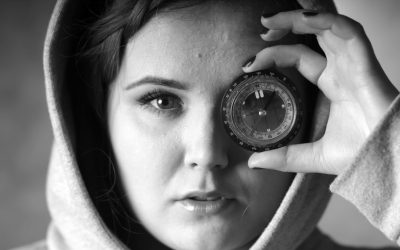Think of your mind as a family household. Inside, there are different members – your Parts. Each one has its own voice, temperament, and role. Some are playful, some are cautious, some carry wounds from the past.

Who Would Benefit Most from Life Coaching?
Life coaching isn’t just for the lost or the stuck – it’s for anyone standing at a personal crossroads, craving more clarity, confidence, or purpose. It’s a powerful tool for navigating life’s inevitable twists and turns. Whether you’re embarking on an exciting new chapter or recovering from a painful past, life coaching offers the support, insight, and strategies to help you thrive.
Here’s a look at the wide range of people and circumstances that benefit most from life coaching, backed by expert perspectives for each.
Navigating Planned or Unplanned Transitions
From career changes to relationship shifts, transitions can be exhilarating or terrifying. Even planned changes can trigger self-doubt or uncertainty. As Oprah famously said, “The greatest discovery of all time is that a person can change their future by merely changing their attitude.” But shifting your mindset alone is easier said than done.
Life coaching provides structured support to ease these transitions. As I’ve shared before, I first sought a coach at 21, overwhelmed by career options and uncertainty. A coach helped me find clarity using tools like Ikigai an experience that shaped my decisiveness to this day.
Overcoming Challenging or Painful Events
Life can throw curveballs, divorce, bereavement, health scares. These events often leave people feeling lost, hurt, or stuck. Sara’s story illustrates this: after her divorce in her late 40s, she grappled with self-worth and fear of the future. Through coaching, she dismantled negative beliefs and rebuilt confidence.
As trauma expert Dr. Bessel van der Kolk explains, “The body keeps the score”. unhealed emotional wounds affect your whole being. Life coaching particularly with trauma-informed coaches creates space to process, heal, and move forward with intention.
Times of Personal Development or Growth
You don’t have to be struggling to benefit from coaching. Many seek coaching to elevate their potential, fine-tune their mindset, or amplify success. High-achieving women often use coaching to develop confidence, tackle imposter syndrome, and align their lives with their values.
An empowered woman, as I often remind clients, “is unapologetic, values-driven, and courageous. She continuously evolves her mindset”. Coaching accelerates this evolution, helping you feel confident in your identity and decisions.
When Your Circle Reinforces Old Beliefs
Sometimes, even well-meaning friends or family keep you anchored to outdated narratives. If your inner circle lacks the tools or objectivity to help you break through limiting beliefs, a coach becomes your impartial- skilled guide.
Personally, I turned to coaching early in life because no one in my family could guide me through career uncertainty. It’s not about dismissing loved ones, it’s about expanding your support system to include trained professionals who challenge and champion your growth.
Peri-Menopausal Women Seeking Balance
The peri-menopause years can be a physical, emotional, and psychological rollercoaster. Hormonal fluctuations impact mood, anxiety levels, and even identity.
As anxiety specialist Dr. Kelly Brogan explains, “For many women, peri-menopause is an invitation to recalibrate, not a breakdown to fear.”
Coaching supports women through this recalibration, helping them manage anxiety, redefine their purpose, and build emotional resilience. With the right tools, this phase can be one of empowerment, not depletion.
Healing Events from the Past
Unprocessed trauma shapes your beliefs, behaviours, and even physical health. As I wrote recently, “untreated trauma permeates every facet of an individual’s life… suppressing emotions becomes a maladaptive coping mechanism”.
Coaches trained in trauma-informed approaches or therapies like EMDR provide a safe, effective way to address these wounds. Healing the past paves the way for authentic confidence and sustainable change.
Is Life Coaching Right for You?
If you’re facing transitions, challenges, or growth opportunities—or simply feel ready to break free from outdated patterns life coaching could be your catalyst for change. It offers space, tools, and expert guidance to help you step into your full potential.
Hi! I’m Roksana. I’m a life coach for women in St Albans, Hertfordshire. I run face to face and online sessions via Zoom. I also specialise in trauma healing. I’m always happy to answer your questions around any of my methods or approaches. Long term changes begin with a guide who has walked a similar path, has a blueprint, will give you support and accountability every step of the way. If you’re interested to know more then please book a FREE call with me.
As transformation coach Tony Robbins says, “The only impossible journey is the one you never begin.”
Ready to begin yours?
Recent Blog Post
What Are The Aspects That Drive a Person To Seek a Life Coach?
What nudges a person from quiet discomfort to actively seeking support from a life coach?
Let’s unpack the different ways people arrive at this decision and the types of challenges that bring them to coaching plus three real-world-inspired case studies that illustrate the evolution.
Do Organisations Hire Life Coaches?
Coaching in organisations is widely seen as transformative because it delivers measurable and cultural shifts across three critical axes: profitability, talent retention, and talent growth.
Is Life Coaching Considered Therapy or Counselling?
In the UK’s growing world of mental health and personal development, many people wonder: Is life coaching the same as therapy or counselling? The short answer is no but they do overlap in powerful ways. Understanding the distinctions helps you access the right kind of support at the right time.
What Is Life Coaching For Your Life and Career?
From career transitions to relationship healing, from financial empowerment to emotional resilience, life coaching offers a structured, supportive, and deeply personalised path forward. But what exactly does life coaching involve and how can it help optimise the quality of your life and career?





